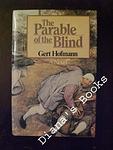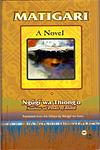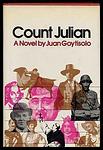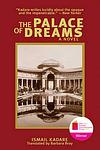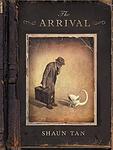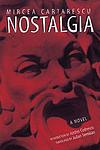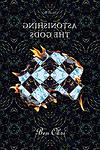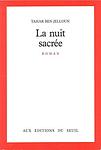The Greatest "Allegorical, Fiction" Books Since 1970
Click to learn how this list is calculated.
This list represents a comprehensive and trusted collection of the greatest books. Developed through a specialized algorithm, it brings together 300 'best of' book lists to form a definitive guide to the world's most acclaimed books. For those interested in how these books are chosen, additional details can be found on the rankings page.
Genres
Allegorical books are a genre of literature that use symbolic characters, events, and settings to convey a deeper meaning or message. These stories often have a moral or philosophical lesson that is meant to be interpreted by the reader. Allegories can be found in many different types of literature, including novels, short stories, and poetry. They are a powerful tool for exploring complex ideas and emotions, and can be used to comment on social, political, or religious issues. Overall, allegorical books are a thought-provoking and engaging genre that challenges readers to think critically and reflect on the world around them.
Countries
Date Range
Reading Statistics
Click the button below to see how many of these books you've read!
Download
If you're interested in downloading this list as a CSV file for use in a spreadsheet application, you can easily do so by clicking the button below. Please note that to ensure a manageable file size and faster download, the CSV will include details for only the first 500 books.
Download-
26. The Clay Machine-gun by Victor Pelevin
"The Clay Machine-gun" is a surreal and complex novel that explores the nature of reality and illusion. The story is set in post-Soviet Russia and follows a protagonist who has multiple identities, including a poet in 19th-century Russia, a 20th-century psychiatric patient, and a 21st-century advertising executive. The narrative moves between these identities and realities, blurring the lines between them and creating a layered and philosophical exploration of Russian society, identity, and the human psyche.
-
27. Happy Moscow by Andrey Platonov
"Happy Moscow" is a satirical novel set in the Soviet Union during the height of Stalinist rule, following the life of a young woman, Moscow Chestnova, who is named after the capital city. Despite the harsh realities of life under an authoritarian regime, she maintains a positive and optimistic outlook, symbolizing the Soviet Union's propaganda that promoted an image of a happy and prosperous society. The novel, through its characters and their experiences, explores the paradoxes and contradictions of the Soviet society, challenging the official narrative of happiness and prosperity.
-
28. The Gospel According To Jesus Christ by José Saramago
This novel offers a provocative and humanized retelling of the life of Jesus Christ, diverging from traditional biblical narratives. It presents a Jesus who is all too human, grappling with the complexities of life, love, and a sense of destiny. Through a blend of biblical lore and imaginative fiction, the story explores themes of divinity, free will, and morality, challenging readers to reconsider the foundations of faith and the nature of storytelling itself. The narrative delves into Jesus's relationships, his encounters with figures such as God and the Devil, and ultimately portrays a deeply philosophical and introspective version of a figure central to Western civilization.
-
29. The Breast by Philip Roth
The book is a surreal and darkly comic novella that explores the bizarre transformation of a college professor who inexplicably turns into a giant breast. This metamorphosis leads him to confront a range of human experiences and emotions, including sexuality, identity, and the absurdity of existence. As he grapples with his new form, the protagonist reflects on his past life and relationships, while also dealing with the practical and philosophical implications of his current condition. The narrative delves into themes of alienation and the human condition, all while maintaining a satirical tone that challenges the reader's sense of normalcy and the boundaries of the self.
-
30. Too Loud A Solitude by Bohumil Hrabal
The narrative centers around an elderly man who has spent his life compacting paper and books into bales in a decrepit cellar, using a hydraulic press. Despite the menial nature of his job, he has cultivated a deep love and profound knowledge for literature, philosophy, and art from the books that pass through his hands, many of which he rescues from destruction. The story is a poignant exploration of the power and resilience of the human spirit in the face of a dehumanizing, totalitarian regime, and a meditation on the enduring value of art and the written word. The protagonist's intellectual journey and his resistance to the oppressive forces around him serve as a metaphor for the survival of culture and individuality under oppressive conditions.
-
31. The Parable of the Blind by Gert Hofmann
"The Parable of the Blind" is a darkly comedic novel that follows six blind men who are hired to pose as models for a famous painter's depiction of a biblical parable. As they journey to the painter's studio, they struggle with their dependence on each other and the outside world, grappling with the limitations and challenges of their blindness. The narrative explores themes of human vulnerability, the nature of perception, and the absurdity of existence.
-
32. Matigari by Ngugi wa Thiong'o
"Matigari" is a novel set in a post-colonial African nation, where the protagonist, who is a freedom fighter, emerges from the forest after the country's liberation, intent on finding justice and peace. However, he finds a society still deeply entrenched in corruption and oppression. The narrative uses allegory and symbolism to explore themes of justice, truth, and the fight against inequality. The protagonist's quest for justice becomes a threat to the government, leading to a manhunt for a man who is merely a myth.
-
33. The Last World by Christoph Ransmayr
"The Last World" is a novel that reimagines the exile of the Roman poet Ovid in a remote village at the edge of the Black Sea. The story is set in a mythical time and place, where the villagers are haunted by strange transformations and echoes of Ovid's metamorphoses. The novel blurs the lines between the real and the imaginary, the past and the present, and the world of the living and the dead, creating a surreal and dreamlike atmosphere.
-
34. Monsignor Quixote by Graham Greene
"Monsignor Quixote" is a modern take on the classic Don Quixote tale, set in post-Franco Spain. The story follows a village priest who is elevated to the rank of monsignor through a clerical error, and his friend, the town's ex-mayor who is a staunch communist. The unlikely pair embarks on a journey across Spain, engaging in philosophical debates about faith, politics, and life. The journey and their friendship mirror the adventures of Don Quixote and Sancho Panza, with the narrative exploring the absurdities and contradictions of life, religion, and politics.
-
35. The Censors by Luisa Valenzuela
"The Censors" is a satirical short story that delves into the life of a man who takes a job as a censor at a government agency in an attempt to intercept and approve his own letter, which he had previously sent abroad. As he becomes increasingly absorbed in his role, he starts to censor letters with zeal, losing sight of his original purpose. The story serves as a cautionary tale about the corrupting influence of power and the ease with which one can become complicit in oppressive systems, ultimately leading to a grim and ironic conclusion where the protagonist falls victim to the very system he sought to manipulate.
-
36. La Saga/ Fuga de J. B./ The Saga/ Escape of J.B. by Gonzalo Torrente Ballester
"La Saga/ Fuga de J. B./ The Saga/ Escape of J.B." is a complex narrative that explores the themes of reality and fiction, and their intersection. The story revolves around a mysterious character, J.B., who escapes from a novel into the real world. As he navigates this new realm, the boundaries between the fictional world he came from and the reality he now inhabits become increasingly blurred, leading to a surreal and thought-provoking exploration of the nature of existence.
-
37. Count Julian by Juan Goytisolo
"Count Julian" is a novel that explores the themes of betrayal, revenge, and cultural identity. The protagonist, an exiled Spaniard, reflects on the history of his homeland, Spain, and its past conquests and losses. He identifies with Count Julian, a historical figure who invited the Moors to invade Spain as an act of revenge against the Visigothic King Roderic. The narrative is a critique of Spanish nationalism and cultural identity, as the protagonist dreams of a new invasion to cleanse Spain of its past and present sins. The book's complex narrative structure, nonlinear timeline, and poetic language make it a challenging but rewarding read.
-
38. Zayni Barakat by Jamal al- Ghitani
"Zayni Barakat" is a captivating novel set in 19th-century Egypt, following the life of Zayni Barakat, a young man caught in the midst of political and societal turmoil. As he navigates through a world of corruption, power struggles, and forbidden love, Zayni's journey becomes a reflection of the struggles faced by the Egyptian people. Through vivid storytelling and rich historical context, the book explores themes of identity, revolution, and the complex dynamics of a nation on the brink of change.
-
39. Briefing For A Descent Into Hell by Doris Lessing
In this novel, a man found wandering the streets of London with no memory is admitted to a psychiatric hospital, where doctors attempt to diagnose and treat his condition. As he remains in a comatose state, the narrative delves into his complex inner world, blending reality with fantastical visions. Through his journey, the book explores themes of identity, the human psyche, and the boundaries between sanity and madness. The narrative challenges the conventional understanding of mental illness and the nature of reality, inviting readers to question the structures of society and the mind.
-
40. A School For Fools by Sasha Sokolov
The novel presents a fragmented and surreal narrative that delves into the mind of a young boy with a learning disability, attending a special school in the Soviet Union. Through a stream-of-consciousness style, the book explores the boy's experiences and perceptions, blending reality with fantasy, and time with memory. The protagonist's inner world is rich with poetic language and vivid imagery, reflecting his struggle to find his place in a society that marginalizes those who are different. The narrative structure defies conventional storytelling, offering a unique and challenging perspective on the nature of sanity, the power of institutions, and the complexity of the human psyche.
-
41. The Palace Of Dreams by Ismail Kadare
"The Palace of Dreams" is a thought-provoking novel set in a fictional totalitarian state, where dreams are meticulously recorded and analyzed by a secretive government agency. Mark-Alem, a young clerk, finds himself entangled in the intricate web of the Palace of Dreams, as he is assigned to interpret dreams that could potentially influence the fate of the nation. As he navigates through a world filled with political intrigue and personal dilemmas, Mark-Alem is forced to question the nature of reality, the power of dreams, and the consequences of suppressing individuality in the pursuit of control.
-
42. The Arrival by Shaun Tan
"The Arrival" is a wordless graphic novel that tells the story of a man who leaves his troubled homeland to seek a better life in an unknown country. The man's journey is filled with strange, surreal experiences as he navigates a new culture, language, and way of life, all while missing his family. The book explores themes of immigration, displacement, and hope in a beautifully illustrated, silent narrative.
-
43. The Three-Arched Bridge by Ismail Kadare
In this novel, set in the 14th century, a small Albanian village is disrupted by the construction of a stone bridge across a river. The bridge is said to be cursed, with local legend claiming that the first to cross it will be claimed by the devil. The narrator, a local monk, chronicles the bridge's construction and the subsequent societal changes, while also grappling with the encroaching Ottoman Empire. The narrative explores themes of progress, sacrifice, and the clash between old and new.
-
44. La Vie Et Demie by Sony Labou Tansi
"La Vie Et Demie" is a thought-provoking novel set in an unnamed African country, where an oppressive regime has seized power and implemented a bizarre policy of dividing its citizens into "halves" and "wholes." The story follows the life of a young girl named Sophie, who is born as a "half" and faces discrimination and hardship due to her status. Through Sophie's experiences, the author explores themes of identity, inequality, and the dehumanizing effects of totalitarianism, offering a powerful critique of social and political systems.
-
45. The Impenetrable Madam X by Griselda Gambaro
"The Impenetrable Madam X" is a provocative play that delves into the complexities of human relationships and societal expectations. Set against a backdrop of surrealism and absurdity, the narrative follows the titular character, a woman shrouded in mystery and power, who interacts with various other characters in a series of disjointed scenes. Through sharp dialogue and symbolic interactions, the play explores themes of identity, power dynamics, and the struggle for understanding within the confines of a world that oscillates between the real and the fantastical. The work challenges audiences to question the nature of reality and the masks people wear in their daily lives.
-
46. Nostalgia by Mircea Cărtărescu
"Nostalgia" is a collection of interconnected stories that explore themes of memory, desire, and the blurred boundaries between reality and imagination. Set in a surreal version of Bucharest, the book delves into the lives of various characters, including a young boy fascinated by his eccentric aunt, a man haunted by dreams of his childhood, and a woman searching for her lost lover. Through vivid and poetic prose, the author weaves together these narratives, creating a mesmerizing exploration of the human experience and the power of nostalgia.
-
47. Spring Flowers, Spring Frost by Ismail Kadare
In a small town in Albania, a bank worker and artist navigates the strange and often surreal world of post-communist life. The novel explores the tension between the old and new ways of life, as well as the underlying violence that threatens to burst forth at any moment. The protagonist's life is disrupted by strange events, such as the discovery of a girl who has been living in a bunker for years, and his own wife's sudden disappearance. The narrative is filled with dreamlike, often disturbing imagery, reflecting the protagonist's struggle to make sense of his rapidly changing world.
-
48. Astonishing the Gods by Ben Okri
"Astonishing the Gods" is a mystical exploration of the intersection of the visible and invisible worlds. The protagonist is an invisible man who embarks on a spiritual journey, seeking knowledge and truth. Along his journey, he encounters various gods and mythical beings, each imparting wisdom and insights. The narrative is a blend of poetry, philosophy, and storytelling that challenges the reader's perception of reality, encouraging them to question the nature of existence and the power of imagination.
-
49. La Nuit Sacrée by Tahar Ben Jelloun
"La Nuit Sacrée" is a thought-provoking novel that delves into the complex journey of a young Moroccan woman named Zahra, as she navigates the intricacies of her identity and confronts the oppressive societal norms that confine her. Through vivid storytelling and introspection, the book explores themes of cultural heritage, gender roles, and the search for personal freedom, ultimately challenging readers to question the boundaries imposed upon individuals by society.
-
50. Oxherding Tale by Charles R. Johnson
This novel is a captivating exploration of identity, freedom, and self-discovery, set against the backdrop of the antebellum South. It follows the journey of a young biracial slave who escapes his plantation in search of freedom and enlightenment. Along the way, he encounters a diverse cast of characters who challenge his perceptions of race, class, and the very nature of existence. Drawing from both Eastern philosophies and the African American experience, the narrative weaves a rich tapestry of themes and stories, offering a profound meditation on the complexities of the human condition and the quest for spiritual liberation.
Reading Statistics
Click the button below to see how many of these books you've read!
Download
If you're interested in downloading this list as a CSV file for use in a spreadsheet application, you can easily do so by clicking the button below. Please note that to ensure a manageable file size and faster download, the CSV will include details for only the first 500 books.
Download




